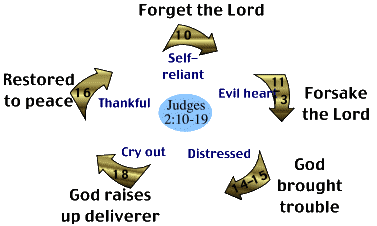By Edward F. Lundwall
 Have you ever known someone who has professed to be a Christian stating, “I went forward at an altar call” or “I have prayed the sinner’s prayer,” but whose life shows no or little change? Have you heard them maintain that no matter which sins they commit their salvation is permanent because they have taken that step? Perhaps you have even hear the reasoning, “I know that the scripture says do not do this, but I can, because…after all God has and will forgive me.”
Have you ever known someone who has professed to be a Christian stating, “I went forward at an altar call” or “I have prayed the sinner’s prayer,” but whose life shows no or little change? Have you heard them maintain that no matter which sins they commit their salvation is permanent because they have taken that step? Perhaps you have even hear the reasoning, “I know that the scripture says do not do this, but I can, because…after all God has and will forgive me.”When they are questioned, these individuals hold to what they have been told by the evangelist who urged them forward---that they are “born again” and in a state of permanent forgiveness before God. They mistakenly presume this condition, based on a phrase, taken out of context, “whoever will call on the name of the Lord will be saved” (Romans 10:13). The context (Romans 10:10) says, “…for with the heart a person believes, resulting in righteousness” emphasizing that the call to salvation must include enough trust (not just mental assent, social pressure, or emotional release) to produce a progressing, transforming life experience.
The Lord Jesus Christ made it clear that a prayer without a change in lifestyle, does not save a person. He said: “’Not everyone who says to Me, ‘Lord, Lord,’ will enter the kingdom of heaven, but he who does the will of My Father who is in heaven will enter. Many will say to Me on that day, ‘Lord, Lord, did we not prophesy in your name, and in Your name cast out demons, and in Your name perform many miracles?’ And then I will declare to them, ‘I never knew you: depart from me, you who practice lawlessness.”’ (Matthew 7:21-23) and “I tell you, no but unless you repent, you will all likewise perish” (Luke 13:3).
The word “repent” means to “willingly turn your back on one direction, and start earnestly in a new direction.” It is not an apology to God; it is not expressing a regret to God. It is completely agreeing with a Holy God that you are a sinner and willfully committing one’s self and the rest of one’s life to following God’s direction. As Paul wrote, “For the sorrow that is according to the will of God produces a repentance without regret, leading to salvation” (2 Corinthians 7:10).
To avoid vain religious practices, the Lord Jesus instructs that one’s life must be reoriented as a disciple---a life-long learner---who builds his life upon the solid foundation of the precepts of His Word. Assurance of real salvation is dependent upon faith enough to produce victory over one’s practice of sin as a lifestyle: So Jesus was saying to those who had believed Him, “If you continue in My word, then you are truly disciples of Mine; and you will know the truth, and the truth will make you free."
The Jews to whom he was speaking, answered Him, " We are Abraham's descendants and have never yet been enslaved to anyone; how is it that You say, 'You will become free'?"
Jesus answered them, ‘Truly, truly, I say to you, everyone who commits sin is the slave of sin. The slave does not remain in the house forever; the son does remain forever. So if the Son makes you free, you will be free indeed.’” (John 8:31-36).
In Romans 7 and 8, the Apostle Paul relates how the experience of full victory over enslavement to sin can be overcome by a faith dependent process of trusting and dependence on the Lord Jesus. This ongoing deliverance from sin is the process that develops a lifestyle in the believer that displays the character and teachings of Christ. This is the saving process leading to “distinctive discipleship.”
Related reading: The Grammar of Salvation


